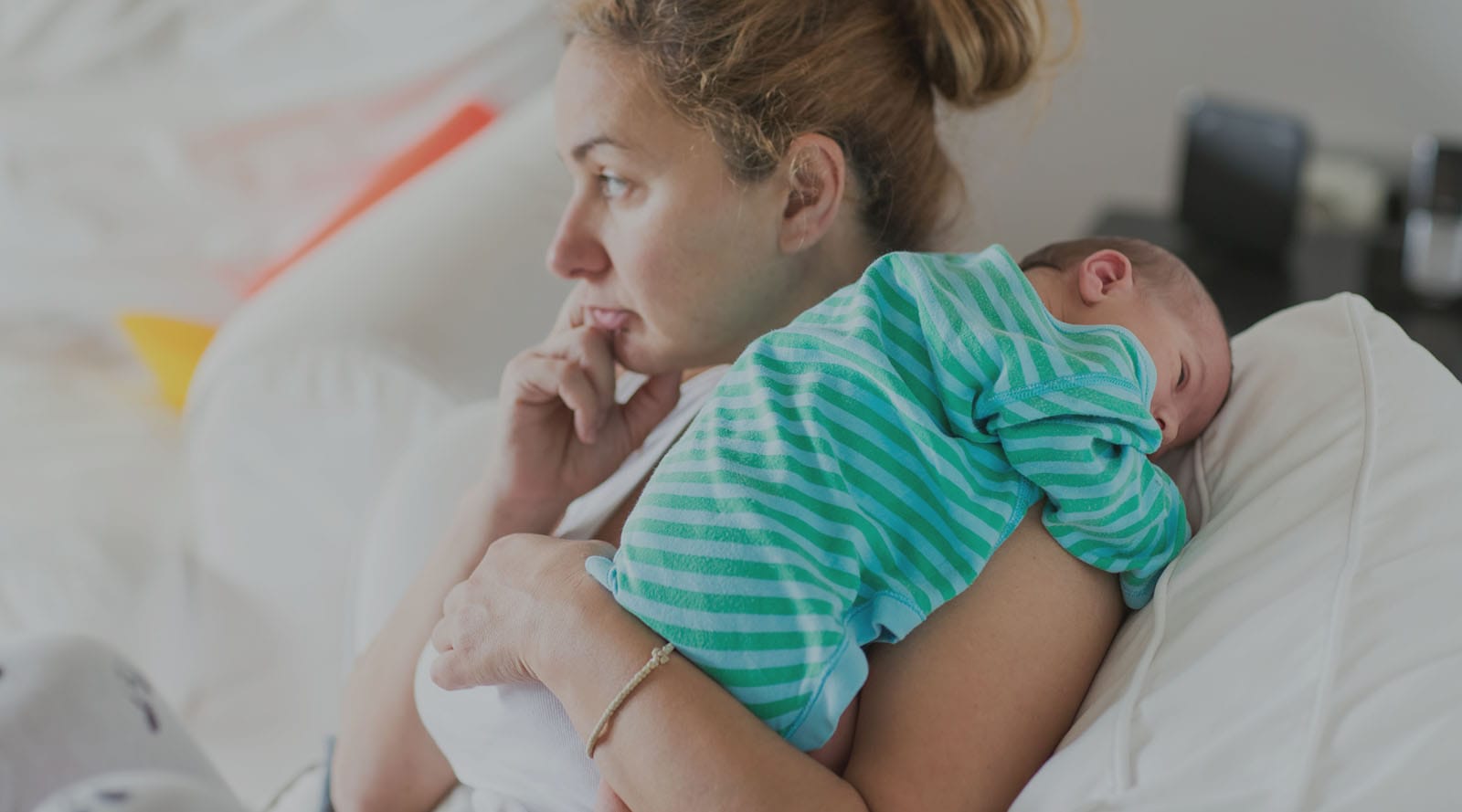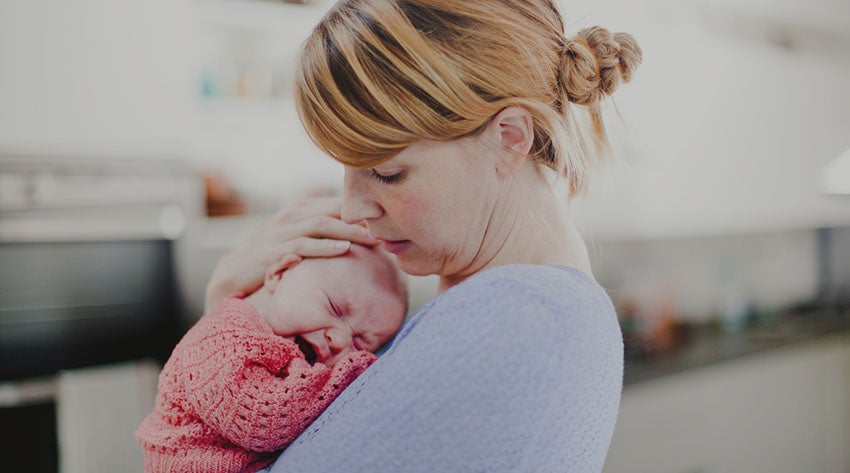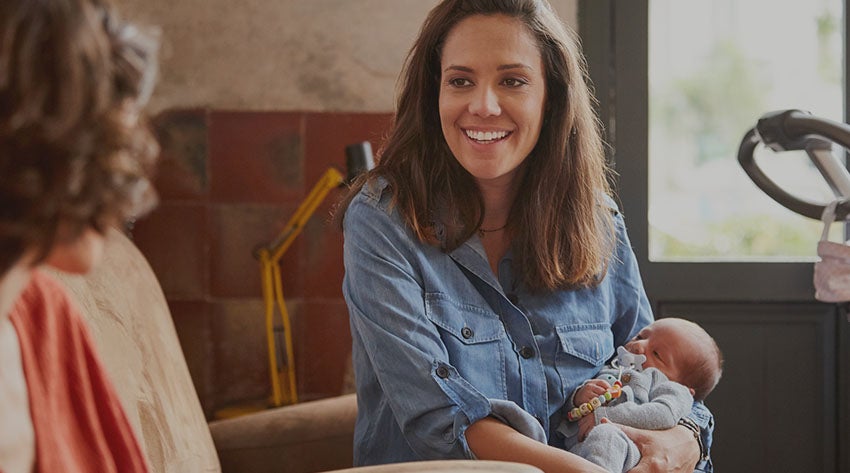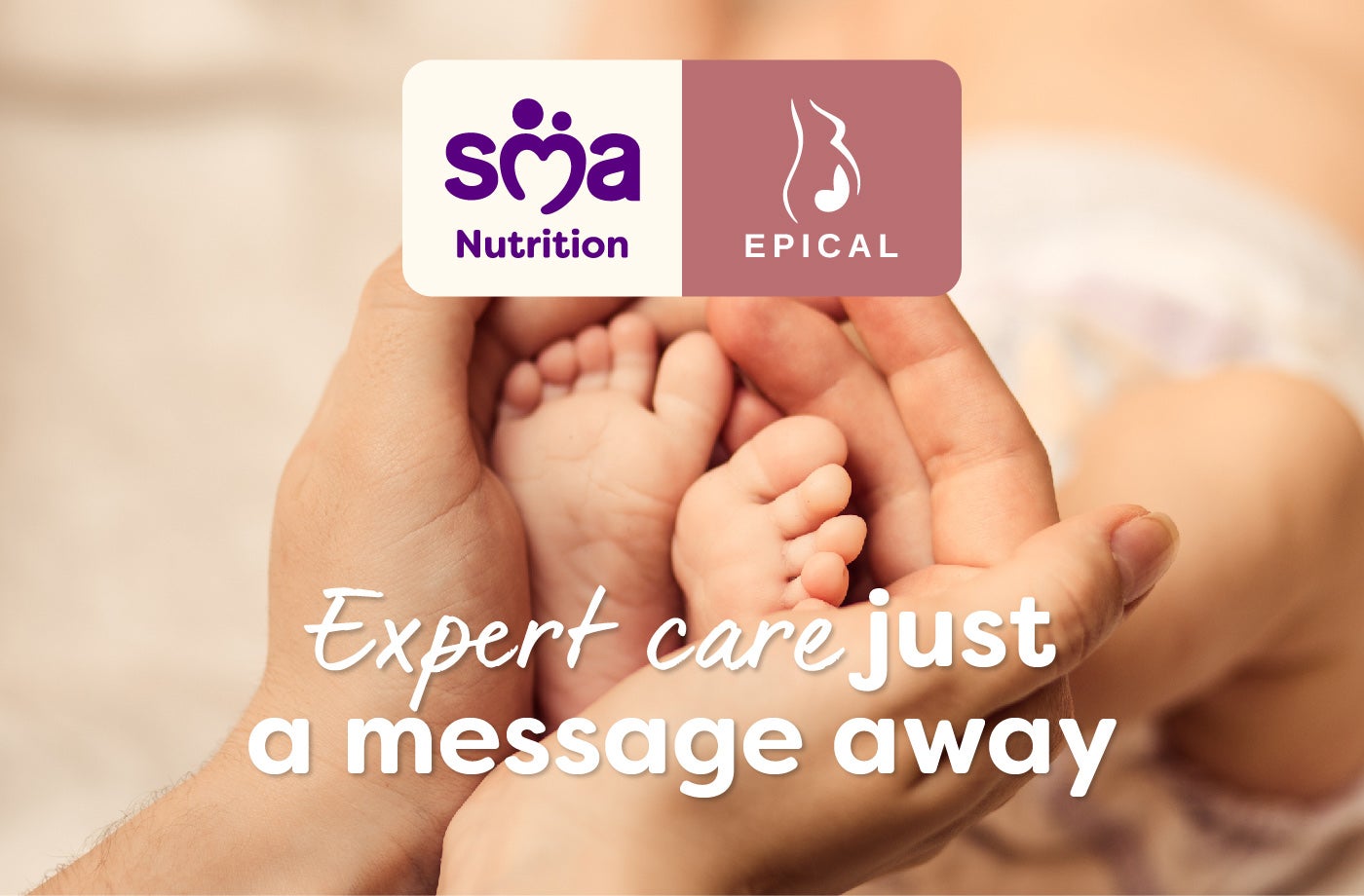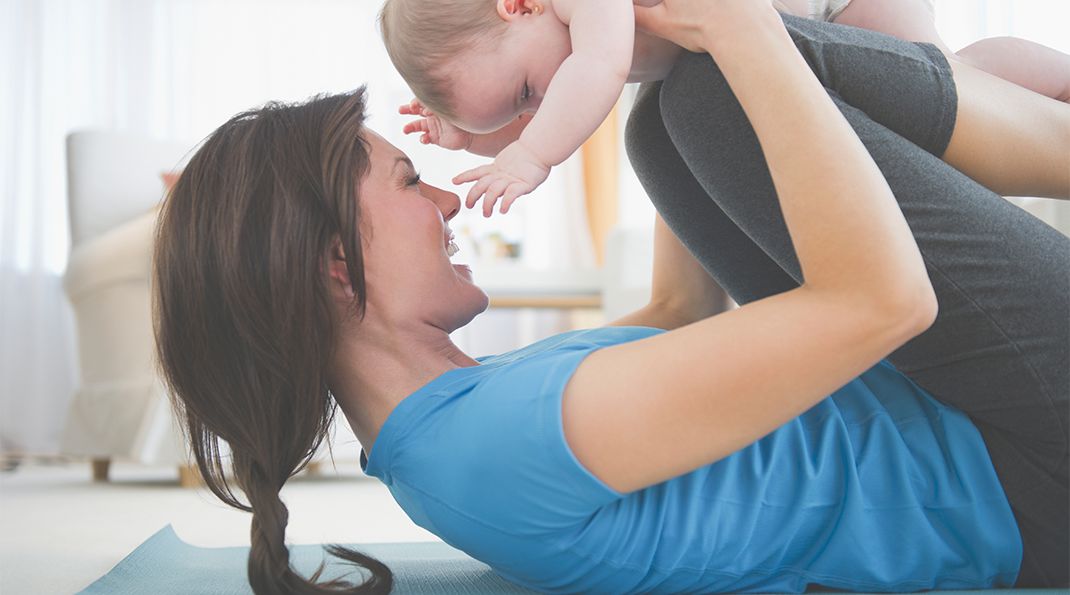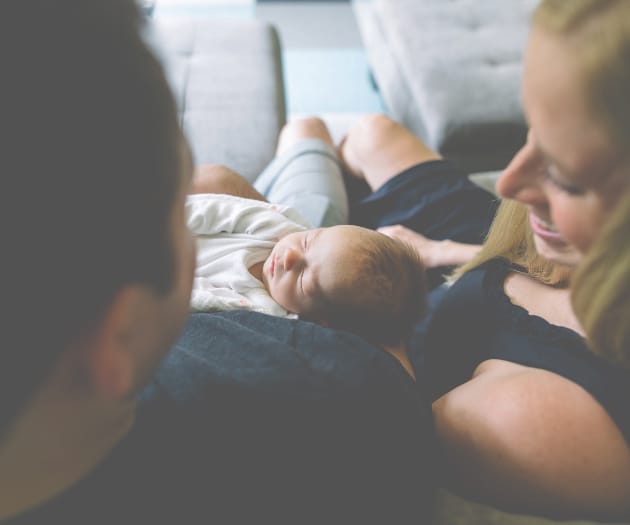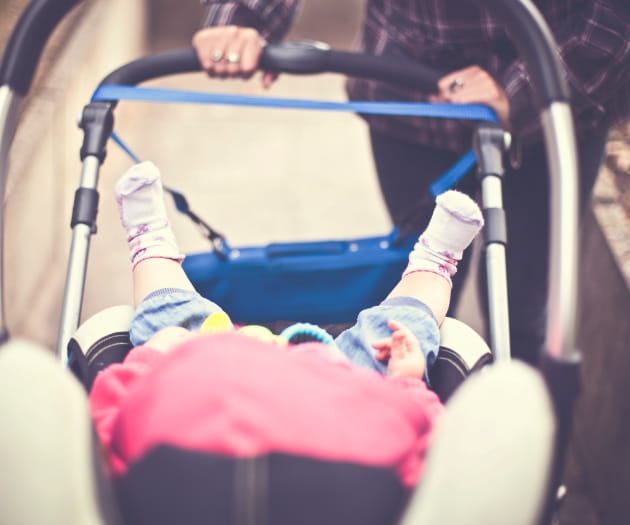At a glance
If you’re feeling low and think it could be postnatal depression tell a healthcare professional
Baby blues makes you weepy and emotional a few days after birth
Postnatal depression is more serious but treatable – it can occur any time up to baby’s first birthday
Men can get postnatal depression too
The baby blues and postnatal depression are not one the same. The baby blues is a hormonal reaction that happens shortly after birth and is so common it’s basically considered part and parcel of the first days of motherhood. Postnatal depression (sometimes called ‘postpartum depression’) however, is more serious and can last a bit longer. There are usually several causes behind it. So if you’re feeling down beyond the first few weeks after giving birth, it might be time to talk to a medical professional in case you’re experiencing postnatal depression.
It’s quite easy to confuse the baby blues with postnatal depression and vice versa. You might not have even heard of it before, but around 80% of mums go through the baby blues. So we’ve put together some information to help you see if you’re experiencing the baby blues or postnatal depression.
Why am I feeling down after giving birth?
It’s supposed to be the happiest time of your life. The birth is supposed to be magical. You’re supposed to be glowing with glee in all of your social media posts. The truth is, it’s not always quite like that. Hardly anyone talks about this for some reason, but in the first week after giving birth many women get the ‘baby blues’. It’s not a new genre of music, it’s to do with levels of your progesterone hormone plummeting after birth. Out of nowhere it can feel like a switch has been flipped and before you know it you’re crying at animal videos and adverts for banks – pretty much anything can set you off. You might also feel a bit irritable and anxious.
Don’t be worried if you’re feeling this way. Chances are many of the mums in your family have been there before, especially since around 80% of women go through it after giving birth. Talk to them about your feelings – it should help. It’s also a good excuse for people to help with the baby and give you a little breather. You should start feeling like your old self soon.
Could it be postnatal depression?
Postnatal depression is quite common, affecting more than one in ten women. Unlike the baby blues, postnatal depression doesn’t necessarily begin straight after baby arrives. It can start in the first few days or it can develop as late as baby’s first birthday.
It can also affect partners, although it isn’t usually as common.
If you think you might be depressed you should seek medical help right away. Your symptoms could last months or even get worse which could end up affecting the baby and the rest of your family too.
With the right support most people make a full recovery.
Symptoms of postnatal depression
If you thought you had been experiencing the baby blues but the symptoms have lasted longer or started later, you could be going through postnatal depression.
Some postnatal depression symptoms include:
- a low mood and persistent feeling of sadness
- a loss of interest in the wider world – finding it hard to enjoy things
- low energy – feeling tired all the time
- having trouble sleeping at night and feeling sleepy during the day
- not being able to bond with your baby
- withdrawing from contact with other people
- problems concentrating and making decisions
- frightening thoughts – for example, about hurting your baby
- general anxiety
- loss of appetite or comfort eating
While these could be indicators for postnatal depression these symptoms could link to other conditions instead, so talk to your GP, health visitor, or public health nurse to be sure.
You might think it’s just mums who are affected, but 1 in 25 new fathers suffer from depression after the birth of their baby. Because postnatal depression isn’t purely down to hormones, dads can be just as susceptible
Lots of people don't realise they have postnatal depression as it can develop gradually. If you’re worried at all about yourself or someone you care about read about what the NHS says about postnatal depression. You might also want to speak to a medical professional.
Getting better
Depending on how you are feeling there are different ways to handle postnatal depression. Your GP, health visitor or public health nurse will be used to meeting parents feeling like this, so talk to them about the best plan of action. There’s plenty of postnatal depression support out there.
It helps to vent
Talk about it with your partner, your friends and new parents you meet out and about. If they know how you’re feeling it will be easier to get the support you need. You don’t have to soldier on in silence. Let someone else put the kettle on and lend an ear.
Getting support
It can help to meet other mums and dads experiencing similar things as you.
Why not try:
- a postnatal NCT group
- baby feeding cafés
- Baby activity classes – Happity helps you find out what events, classes or activities are in your local baby and toddler community
There’s no need to be shy - swap numbers and meet up for coffees and chats around baby naps. Perhaps set up a group chat for late-night venting.
Getting treatment
There are various types of therapies to help with postnatal depression. If you’re looking for treatment options speak to your GP or public health nurse.
Don’t be afraid to seek help
Seeking help is the best thing you could do. Most people get through depression by talking about it. By speaking up you’ll actually improve your chance of getting better and bonding with your baby - which is what everyone wants.
Where can I get more info?
If you think you might have postnatal depression or you’re not sure, get advice from your GP, health visitor or a public health nurse.
Midwife Live Chat
We have partnered with Epical Global giving our SMA® Baby Club members instant access to a team of expert midwives, ready to answer all your questions. The midwife team are on hand via live chat Monday to Friday, 10am – 6pm.



